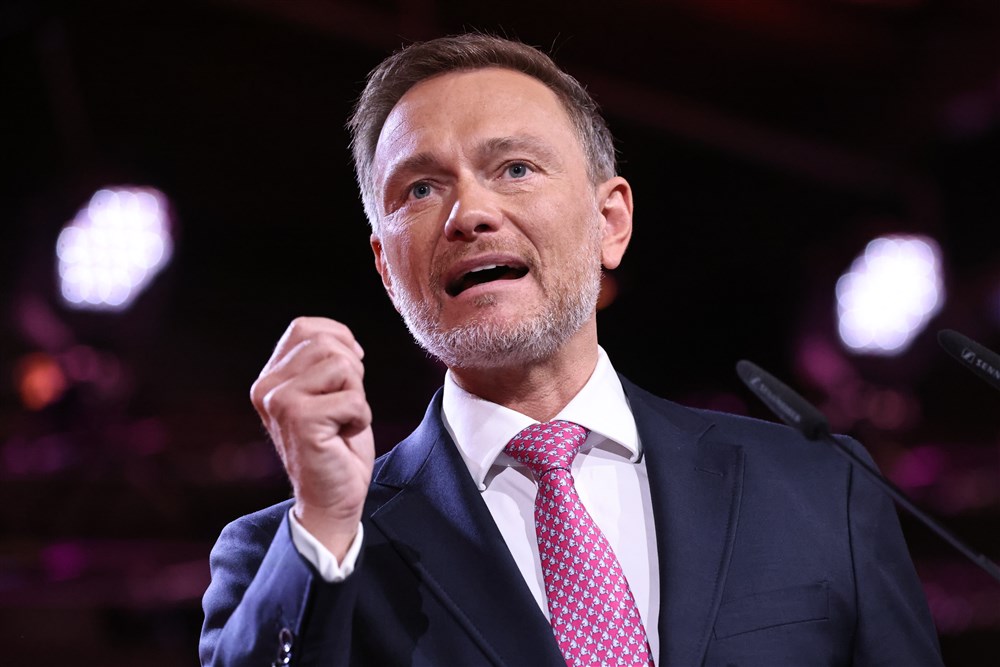Germans identify less with Europe than in the past, according to a new survey from German public broadcaster ARD. The numbers also seem to indicate increasing polarisation regarding the European Union.
The ARD survey reveals eligible voters in Germany are more critical than they were about EU membership. Thirty-eight per cent currently say that the European countries should once again act more independently and take back responsibilities from the EU. That is a rise of 16 per cent compared to figures in July 2020.
On the other hand, where once more than half said they wanted to see European countries deepen their cooperation and hand over more control to the EU, the lastest drop of 20 per cent means now just 34 per cent of Germans want closer European integration.
One in five, 20 per cent, would not change anything significant about the cooperation between EU countries at present, an increase of 1 per cent.
The latest figures are from a poll by German research group Infratest dimap of 1,302 eligible voters. The survey formed an extra feature by ARD-DeutschlandTrend in the run-up to the WDR Europaforum, a German TV special on Europe in which Chancellor Olaf Sholz and European Commission President, Ursula von der Leyen ,will feature.
The German public’s view of the advantages and disadvantages of EU membership has also changed in recent years. Currently, about 25 per cent of those surveyed say that Germany tends to benefit from EU membership, a drop of some 14 percentage points compared to July 2020. A similar number, 27 per cent, now say that Germany tends to be disadvantaged by EU membership, a rise of 12 percentage points.
However, 41 per cent of Germans say that EU membership advantages and disadvantages are balanced, about the same as in 2020. Meanwhile, only a minority of Germans question the value of EU membership as a whole. Some 14 per cent of eligible voters agree with the statement that Germany should leave the EU. More than four out of five citizens, however, disagree with the statement.
The perception of advantages brought by membership of the European Union is also in decline. For example, 68 per cent of people say they live more securely thanks to the EU, a decline of 10 percentage points compared to the run-up to the most recent European elections in May 2019. Against this, 23 per cent disagree.
Only a narrow majority, 56 per cent, now believe that membership in the EU makes Germany economically better off, a fall of 22 percentage points compared to May 2019, while 35 per cent believe the opposite.
A majority of Germans now identify less strongly as Europeans, with 56 per cent stating that any sentence starting: “We as Europeans…” leaves them feeling either less addressed or not at all addressed. On the other hand, only about four out of 10 Germans, 41 per cent, feel strongly or even very strongly addressed – a decline of 7 percentage points. That is in contrast to two decades ago, when almost 50 per cent agreed to the same extent.
The number of individuals with a strong sense of European identity has increased, as has the number who hold negative views towards Europe. Overall, there is a trend toward scepticism regarding the European project.
The preference for a common European army is also in decline among Germans. Today, 53 per cent of people say they want a single, European-wide army, with 32 per cent rejecting the idea. In 2019, however, 62 per cent supported the creation of such an armed force.
Meanwhile, 52 per cent of those surveyed are willing to accept Ukraine into the EU, a decline of 6 percentage points compared to February this year, with 37 per cent of Germans opposed the possibility.
EU cooperation with the United States is largely supported in Germany. A relative majority of 42 per cent believe cooperation should continue at the current level, while 29 per cent think it should even be expanded. Against this, 22 per cent think cooperation with the US should be reduced.
The survey revealed Germans have differing views on EU cooperation with China: almost one in two, 47 per cent, think the current level should be reduced, while about a third, 28 per cent, would keep it at as it is and 14 per cent think it would be positive for the EU to expand cooperation with China.





